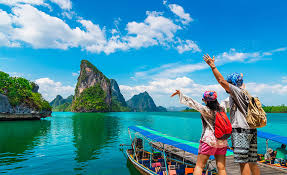As travel continues to grow, so does its environmental impact. Sustainable travel focuses on minimizing the carbon footprint of your trips while supporting eco-friendly initiatives and preserving the natural beauty of our planet. Here’s how you can travel more responsibly.
1. Choose Eco-Friendly Transportation
- Opt for Trains and Buses: Trains and buses tend to have a lower carbon footprint compared to airplanes, especially on shorter trips. Consider taking the train for local or regional travel when possible.
- Fly Less: Air travel contributes significantly to carbon emissions. If you must fly, consider choosing direct flights, which tend to be more fuel-efficient, and try to fly economy class to reduce emissions per passenger.
- Carbon Offsetting: Some airlines offer carbon offset programs where you can pay a small fee to offset the environmental impact of your flight. The money is invested in renewable energy projects and reforestation initiatives.
2. Support Local Communities and Eco-Friendly Businesses
When you travel, try to stay at eco-conscious accommodations. Many hotels, hostels, and resorts now offer sustainability certifications and eco-friendly practices such as water conservation, renewable energy, and waste reduction. Additionally, by supporting local businesses and artisans, you help sustain the economy of the community you’re visiting.
3. Be Mindful of Your Impact
- Avoid Over-Tourism: Popular destinations often suffer from over-tourism, which can damage local ecosystems and communities. Consider visiting lesser-known places or traveling during the off-season to reduce the strain on popular destinations.
- Respect Wildlife and Nature: Always stick to marked trails and avoid disturbing wildlife. Keep your distance from animals and avoid taking souvenirs made from endangered species or natural resources.
4. Travel with Purpose
Consider combining your travel with meaningful projects like volunteer tourism (voluntourism) or joining conservation-focused travel experiences. These types of activities not only provide a deeper connection to the destination but also help contribute to conservation efforts.

